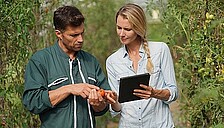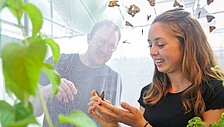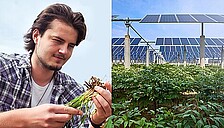Masters Programs in which the Institute of Social Sciences in Agriculture is involved
The Institute of Social Sciences in Agriculture is involved in bachelor’s and master's programs. Three master’s programs are overseen each by a department head serving as the Program Director. In addition to these programs, each department provides a wide range of compulsory and elective courses. For detailed course offerings, please visit the teaching pages of the individual departments.



